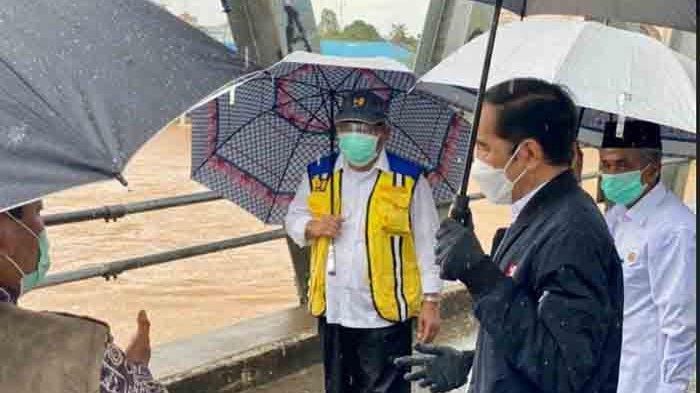Government Optimally Handles Floods in South Kalimantan
By: Zakaria) *
The floods that hit South Kalimantan were truly heartbreaking, because the water level was more than 2 meters. Flood disaster has an emergency response status because the water discharge continues to increase. The President instructed all parties to deal with floods in Banua, so that the refugees would be safe.
Since Wednesday, January 13, 2021, South Kalimantan has been hit by heavy rain so that the Pelaihari River has overflowed. This resulted in flooding in 7 districts / cities, namely Banjar Baru City, Tanah Laut City, Tapin Regency, Banjar Regency, Hulu Sungai Tengah Regency, Tabalong Regency, and Balangan Regency.
The Data and Information Center for the National Disaster Management Agency explained that 27,111 houses were flooded and 127,709 residents were displaced. Because the flood was getting higher (more than 2 meters) and the water had not receded yet, this disaster changed its status to become a national emergency response.
President Jokowi ordered various parties to send aid as soon as possible, including the Head of BNPB, the TNI Commander, and the Police Chief. The main assistance also includes rubber boats, because they are urgently needed in dealing with floods in South Kalimantan. He also coordinates with the Governor of South Kalimantan to get the latest reports.
The President also reminded the public to always be aware of natural disasters due to extreme weather. In that sense, when the status of a flood disaster is upgraded to an emergency response, there will be evacuation, rescue, assistance and protection for victims as soon as possible. After the disaster ends, there will be restoration of facilities and infrastructure.
The Banjarmasin municipal government immediately responded to the President’s instructor by establishing posts in 5 sub-districts and 52 urban villages. Meanwhile, residents took refuge in public spaces and provided no less than 1,500 packaged rice per day. The community really needs help, because they may flee without bringing supplies or cash.
Aid also flows from the community, even from outside Kalimantan. The people of Banua appreciate donations in the form of basic necessities and money, because as fellow citizens, they pay attention. The local government also helps coordinate so that aid actually reaches the refugees.
Head of the Banjarmasin Social Service, Iwan Ristianto, explained that the flood could not be overcome, because it was still heavy rain and the river water level had increased. There are even areas where the water is up to 3 meters high. However, he made sure there was a soup kitchen set up in each sub-district, so that the refugees would be safe and not starve.
Public kitchens are very important because refugees really need logistics. But it needs to be considered again, whether the menu is nutritious or not. The local government of South Kalimantan has arranged for the refugees not to eat only instant noodles, because of this. Especially in the rainy and flood seasons, they catch cold easily and need food that is suitable for consumption.
Apart from that, the problem of evacuation locations also needs careful coordination. Currently it is still a pandemic period, so no refugees should not sleep crammed into a tight space. Health protocols such as maintaining distance and wearing masks must be adhered to, so that all refugees and SAR teams, as well as regional government representatives, do not contract the corona.
The refugees are also reminded to be diligent in washing their hands. Especially during floods, they are prone to diarrhea, and one of the prevention is clean living habits. Washing hands can prevent stomach aches, coughs and colds, and rejects the covid-19 virus. The refugee coordinator also ensures they all adhere to health protocols.
The flood disaster that occurred in South Kalimantan made the refugees sad because their houses were submerged in water. The President immediately responded and sent his subordinates to clean up the floods and send aid as soon as possible. The assistance provided was not only in the form of basic necessities, food and clothing, but also rubber boats for evacuation.
) * The author is a citizen living in Bogor
